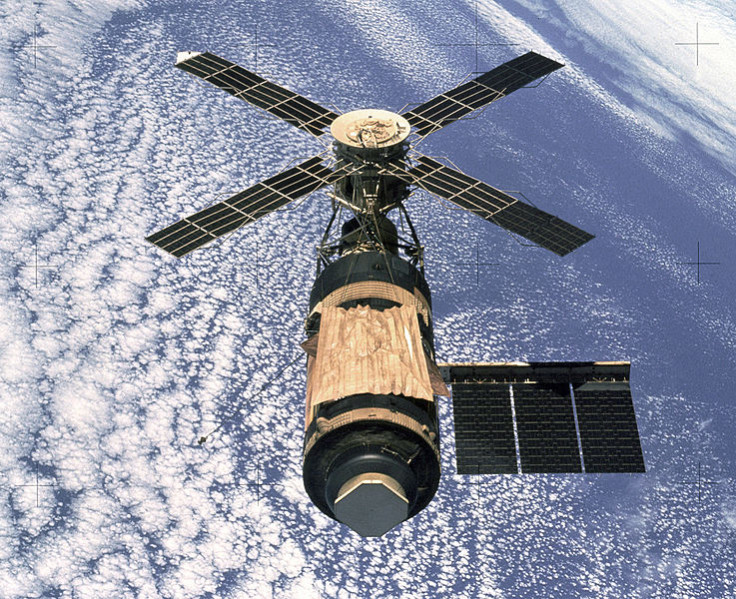William R. Pogue: Who Was the Man Who Went on Strike in Space?

An astronaut who went on strike in space and who piloted a record-breaking American mission into the unknown has died at the age of 84.
William Reid Pogue was an accomplished teacher, speaker and author, as well as being a member of the three-man crew which flew one of the longest and the final manned mission aboard Skylab Orbital Workshop, the United States' first space station.
But who was the Colonel Pogue?
Pogue was born in Okemah, Oklahoma and was awarded a master of science degree from Oklahoma State University in 1960. He had enlisted in the Air Force in 1951 and served during the Korean War between 1953 and 1954. As a Air Force colonel, Pogue came to the Manned Spacecraft Center from an assignment at Edwards Air Force Base in California.
Pogue was one of 18 astronauts selected by Nasa for the Apollo programme in April 1966, serving as a member of the astronaut support crews for the Apollo 7, 11 and 14 missions.
Pogue was known for his humour and grounded personality. Henry S. F. Cooper Jr, a former writer for The New Yorker, described him as "the earthiest of all the astronauts".
What was the final manned mission on Skylab?
Pogue was the pilot of Skylab 4, the third and final manned mission which was launched in February 1974.
It was one of the longest manned space explorations to date, with the exception of the recent mission on the International Space Station in which Oleg Kotov, Sergey Ryazansky and Michael Hopkins spent 166 days in space.
Pogue's mission travelled a record-setting 34.5 million miles, during which the team successfully completed 56 experiments and 26 science demonstrations during their 1,214 revolutions of Earth.
Halfway through the mission, Pogue wrote: "We had been overscheduled. We were just hustling the whole day. The work could be tiresome and tedious, though the view was spectacular."
The 118ft-long station disintegrated upon re-entering the atmosphere in 1979.
Why did Pogue go on strike in space?
Pogue and his crew members aboard Skylab took time off from their mission - while in space. They later referred to it as an outer space "strike", although the reason behind the break was because the team wanted more time to look out of the window and contemplate their situation. The ground control team at Cape Canaveral presumed the crew were suffering from depression or medical lethargy as a result of their mission.
In 1985 Pogue told Science News this was not the case. He said he felt "much more inclined toward humanistic feeling toward other people, other crewmen" and tried to put himself in "the human situation, instead of trying to operate like a machine".
In his 2011 autobiography, Colonel Pogue revealed the so-called strike led to a compromise with controllers.
What else did Pogue do?
Upon retiring from Nasa in 1975, Pogue was very open about the physical realities of space travel - which included nausea, vomiting, headaches and dizziness. In 1999, he wrote a book called "How Do You Go To The Bathroom in Space?" which detailed day-to-day activities of the crew.
In 1992, he co-wrote a science fiction novel called The Trikon Deception with Ben Bova and penned Space Trivia in 2003. His final release was his autobiography But For the Grace of God in 2011.
Later in life, Pogue was also a consultant in developing space station technology for the aircraft manufacturers Martin Marietta (now known as Lockheed Martin) and Boeing.
© Copyright IBTimes 2025. All rights reserved.






















